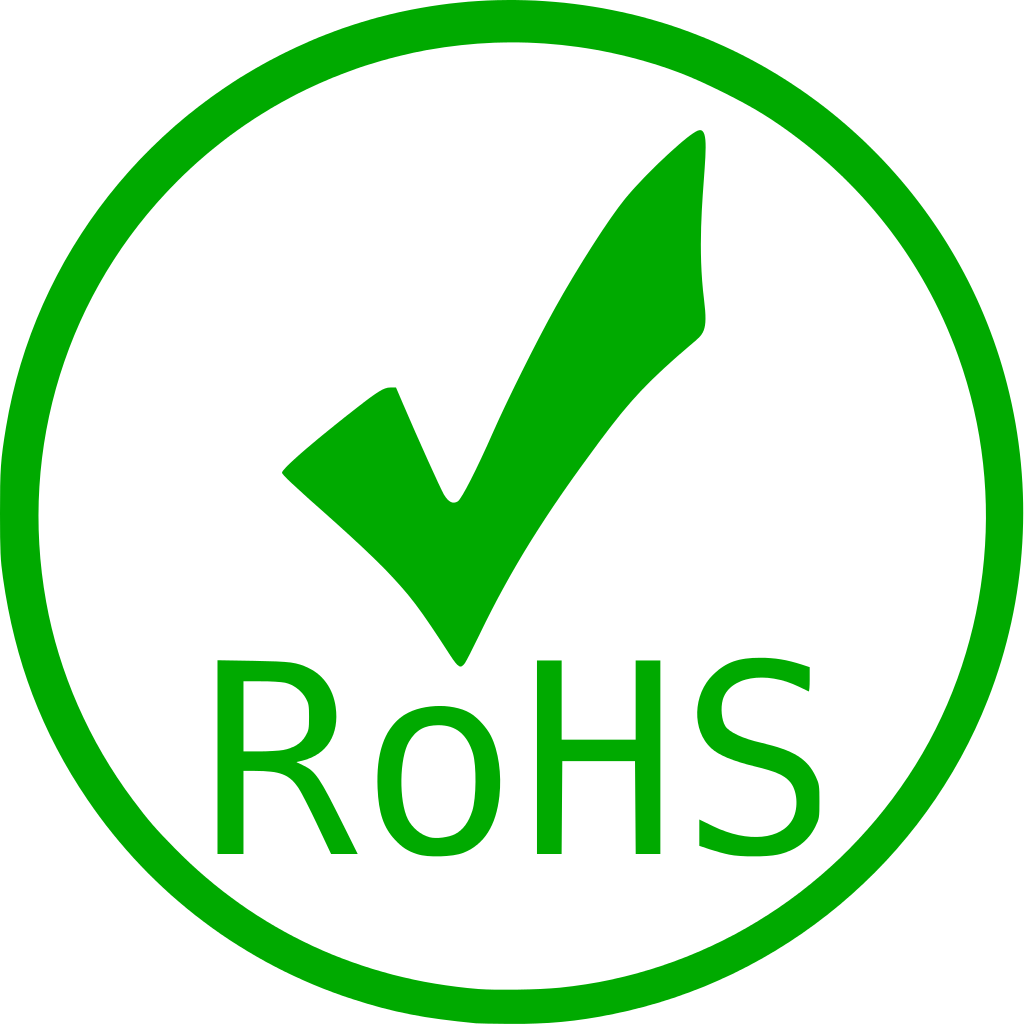 Loading... Please wait...
Loading... Please wait...CHEMICAL REGULATIONS & DIRECTIVES: 2. EU's Restriction of Hazardous Substances: RoHS Strategies - How may RoHS Affect Your Buisiness?
Posted by Linda Thell on 10-26-2016
EU's Restriction of Hazardous Substances: RoHS – How may RoHS Affect your Business?

In addition to the EU chemical policy: REACH, it may be good
to be aware of the European Union’s RoHS Directive, Directive 2002/95/EC.
Being both REACH and RoHS compliant are important steps towards sustainability. RoHS is not an actual regulation, but rather a directive from the EU. [6] The difference between a regulation and a directive is that a regulation have a binding legal force throughout every EU member and enter into force on a set date in all the member states; whereas, Directives "lay down results that must be achieved but each Member of the EU is free to decide how to bring the directive to national laws" [7]. The RoHS must however be met by any business who wants to manufacture in, sell in the EU, or import from the European Union [6]. It's recommended to learn about RoHS and REACH prior to sourcing packaging. Knowledge about the RoHS directive and the REACH regulation can help result in sourcing the most sustainable and effective packaging solution for your product.
Questions answered in this article:
- What is the RoHS Directive?
- Is my business affected by RoHS?
- Why is RoHS important to Packaging?
RoHS stands for Restriction
of Hazardous Substances.
RoHS restricts the use of specific hazardous materials found
in electrical and electronic products. Hazardous materials can pollute the
environment and expose humans to toxic substances that may be harmful. RoHS focuses on electronic waste and the affect of that waste. RoHS outlines the maximum permitted concentrations that are allowed. Materials and substances that are restricted under RoHS are the following chemicals:
- Lead (Pb)
- Mercury (Hg)
- Cadmium (Cd),
- Hexavalent chromium (CrVI),
- Polybrominated biphenyls (PBB),
- Polybrominated diphenyl ethers (PBDE),
- and four different phthalates (DEHP, BBP, BBP, DIBP)[1].
The RoHS directive’s goal is to also decrease the amount of hazardous material ending up in landfills [2].
Parkway Plastics Inc. is RoHS compliant which mean that our manufactured jars and caps are eligible for export/import to the European Union. When it comes to purchasing wholesale Plastic Jars from a US Manufacturer, you can be sure to know that Parkway’s Plastic Jars and Caps are eligible for re-sale in the European Union in ordinance with RoHS.
The maximum levels under RoHS are [3] :
Lead (Pb): < 1000 ppm
Mercury (Hg): < 100 ppm
Cadmium (Cd): < 100 ppm
Hexavalent Chromium: (Cr VI) < 1000 ppm
Polybrominated Biphenyls (PBB): < 1000 ppm
Polybrominated Diphenyl Ethers (PBDE): < 1000 ppm
Bis(2-Ethylhexyl) phthalate (DEHP): < 1000 ppm
Benzyl butyl phthalate (BBP): < 1000 ppm
Dibutyl phthalate (DBP): < 1000 ppm
Diisobutyl phthalate (DIBP): < 1000 ppm
Who if Affected by RoHS?
1. Manufacturers
2. Importers
3. Exporters [4]
Do I need to meet The Restriction of Hazardous Substances (RoHS)?
Here’s a list:
It’s recommended that you deepen your knowledge
of the RoHS Directive if your product falls into one of the categories below:
The following product categories are impacted by the RoHS Directive:
1. Household Appliances such as refrigerators, washers, stoves or air conditioners
2. Small Household Appliances such as vacuum cleaners, hair dryers, coffee makers, and irons.
3. Computing and Communications Equipment, like computers, printers, copiers, phones.
4. Consumer Electronics, such as TVs, DVD players, stereos, video cameras, etc.
5. Lightening like lamps, lightening fixtures, light bulbs.
6. Power Tools: drills, saws, nail guns, sprayers, lathes, trimmers, blowers.
7. Toys and Sports Equipment – video games, electric trains and treadmills, etc.
8. Automatic Dispensers, vending machines and ATM machines
However, there are exceptions... these products that are currently exempted from RoHS:
- 1. Medical
Devices and Equipment
- 2. Control and
Monitoring Equipment
- 3. Products
for National Security Use and Military Equipment
- 4. Some
Stationary Industrial Tools
- 5. Some Light Bulbs / Batteries
- 6. Some parts for Electronic Equipment on market before July 1,2006 [5]
Packaging may need to comply with the RoHS directive even if its not the actual product but the packaging of that product. It is always recommended that you know what your packaging consist of, including the chemicals of that packaging. Parkway Plastics Inc. is RoHS compliant so that you can be sure that your packaging will meet the standards set forth by the RoHS directive.
To sum it up, RoHS regulations limit, bans or restricts use of chemical substances
(lead, cadmium, polybrominated biphenyl, mercury, hexavalent
chromium, and polybrominated diphenyl ether flame retardants) in electronic
and electric equipment through the European Union. Let Parkway help you come up with RoHS compliant packaging for your electronic & non-electronic products today!
Make Import & Export Easier by Sourcing Product Packaging from Parkway Plastics, Your RoHS Compliant Jar and Cap Manufacturer & Supplier!
READ NEXT: CHEMICAL REGULATIONS & DIRECTIVES: 1. EU’s CHEMICAL POLICY - REACH – How REACH can Affect Your Business.
[1] http://www.rohsguide.com/rohs-faq.htm - 10/25/2016
[2] http://www.conwire.com/blog/rohs-and-its-impact-on-your-business/ - 10/25/2016
[3] http://www.rohsguide.com/ - 10/25/2016
[4] http://www.rohscompliancedefinition.com/rohs-compliance-faq.html - 10/25/2016
[5] http://www.rohsguide.com/rohs-categories.htm - 10/25/2016
[6] http://www.nefab.com/en/insights/rohs-how-does-it-... - 10/26/2016
[7] http://www.usda-eu.org/eu-basics-questions/differ... - 10/26/2016).
Recent Posts
- » Conflict Minerals - What are they and what do they mean for your business...
- » Coronavirus fears have you worried about your favorite hand sanitizer being out of stock? Make your own homemade hand sanitizer!
- » Apothecary Jars: Plastic and Glass Apothecary Jars in a Variety of Sizes, Shapes and Color available from Parkway Plastics Inc.
- » Introducing the Mini Box with Child Resistant Tab (1.75 oz)
- » Introducing the Brick Box with Child Resistant Tab (5.5 oz)
